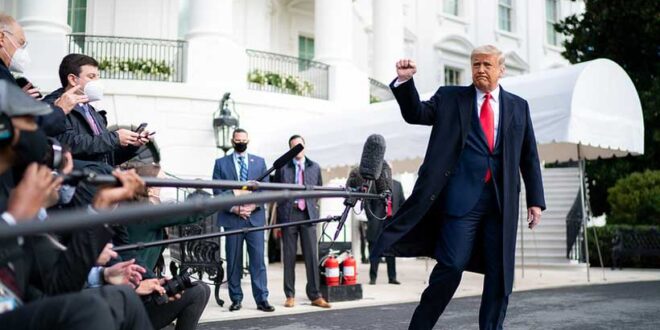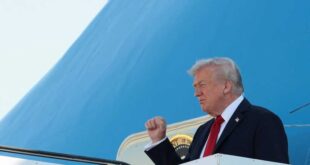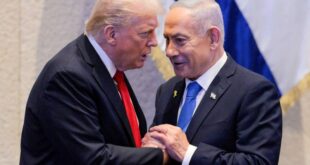With Donald Trump’s return to the White House in 2024, the Horn of Africa faces new and profound challenges. The Horn views this shift with a mix of caution and urgency. Trump’s “America First” approach may profoundly impact U.S. engagement in the Horn of Africa—an already volatile region. Ethiopia, Sudan, Somalia, Eritrea, and Djibouti stand at a crossroads as U.S. foreign policy could either ease tensions and uphold human dignity or exacerbate existing crises by propping up oppressive regimes.
The Horn of Africa, with its strategic Red Sea coastline and proximity to the Middle East, is a focal point for global competition among the U.S., China, and Russia. But, the most pressing question is whether the U.S. will finally prioritize humanitarian concerns over political expediency. As the Trump administration reengages with the Horn, there is a need for policies that recognize the urgent need for true strategic engagement, stability, and human dignity rather than bolstering authoritarian regimes or turning a blind eye to the suffering of suffering groups.
Security and Counterterrorism: Addressing All Forms of Threat
The Horn of Africa has long been a critical battleground in the global fight against terrorism. Somalia’s al-Shabaab and various insurgent groups have posed significant threats to regional stability. Trump’s administration is expected to maintain a focus on counterterrorism operations to combat non-state actors. However, the greatest threats come from state-sponsored violence, displacement, and deliberate deprivation.
U.S. counterterrorism strategy should extend beyond non-state actors to address the terror inflicted on civilian populations by state forces and their allies. Governments, under the guise of “counterterrorism,” have waged a campaign against civilians that includes arbitrary arrests, enforced disappearances, and systematic abuses. The Trump administration’s approach to security in the Horn must prioritize the protection of civilians in regions where state-sanctioned violence has destabilized communities and fueled resentment.
Moreover, while military operations may suppress immediate threats, they cannot address the root causes of extremism and conflict that often stem from poverty, disenfranchisement, and systemic oppression. There is an urgent need for a U.S. strategy that recognizes these underlying issues and seeks to resolve them through inclusive governance, economic development, and respect for local voices. By addressing the sources of instability, the U.S. can foster long-term security that serves not only American interests but also the dignity and safety of civilians.
Humanitarian Aid and Development Assistance
The Horn of Africa is home to some of the world’s most severe humanitarian crises, exacerbated by conflict, climate change, and state sponsored violence. Millions of people are facing starvation and severe malnutrition. Humanitarian organizations have reported widespread suffering, and yet aid continues to be politicized, with those most in need cut off from lifesaving assistance. During Trump’s first term, foreign aid cuts and an “America First” policy limited U.S. contributions to international relief efforts, and a continuation of this trend could have catastrophic consequences for millions.
The urgency is clear: sustained humanitarian assistance is not merely a matter of charity—it is a lifeline. The Trump administration must maintain humanitarian funding to the region, ensuring that aid reaches all populations in need, regardless of political affiliations. Food, water, shelter, and healthcare are critical. If the U.S. cuts foreign aid or restricts humanitarian funding, it risks deepening the suffering in the Horn of Africa, where already fragile communities are facing famine. It also risks creating instability.
Beyond emergency aid, long-term development assistance is essential to rebuild war-torn regions. This assistance should be directed locally and focus on restoring agricultural productivity, rebuilding infrastructure, and supporting education and healthcare systems. By investing in the resilience of communities, the U.S. can help prevent future conflicts and foster stability in the Horn.
Championing Human Rights and Justice
The plight of many in the Horn has underscored the urgent need for international accountability and justice. Genocide in Tigray has shocked the world yet accountability remains elusive. The Trump administration must move beyond the usual condemning of these abuses and take concrete steps to support mechanisms of justice that address such violations.
A U.S. foreign policy that emphasizes human rights would reinforce accountability in the region. The Trump administration could advocate for international investigations, to document abuses and hold perpetrators accountable. Such an approach would send a clear message of American values.
Moreover, a robust U.S. stance on human rights would encourage upholding international standards and put pressure on governments committing atrocities to cease their heinous campaigns against civilians. International justice is not just about retribution but about healing and restoring a sense of dignity and security to a community that has suffered deeply. The Trump administration must recognize that a stable and peaceful Horn of Africa requires justice for those who have been oppressed and silenced. This will also surely align with the strong American value of upholding human dignity.
Conclusion: A Call for Responsible Engagement in the Horn of Africa
As Trump resumes the presidency, the people of the Horn of Africa stand at a critical juncture. The choices made by the U.S. in the coming years will either deepen the suffering of millions or foster a path toward a stable geostrategic Horn, human dignity, and resilience. A strong U.S. policy could make the difference.
The Trump administration has the opportunity to transform U.S. approach to the Horn of Africa, emphasizing strategic, yet compassionate engagement that upholds human dignity, and addresses the root causes of instability. By doing so, the U.S. can contribute to a region where people can live in peace, pursue economic opportunity, and rebuild communities torn apart by conflict and state sponsored violence.
For all those affected by violence and marginalization in the Horn, such a policy would represent hope—a chance for healing, justice, and the possibility of a future free from instability. The U.S. stands at a moment where its role as a global leader can either perpetuate suffering or pave the way for genuine strategic engagement in the Horn of Africa. Now, more than ever, the Trump administration’s choices will have consequences far beyond American shores, shaping the lives and futures of millions who long for dignity and stability.
 Geostrategic Media Political Commentary, Analysis, Security, Defense
Geostrategic Media Political Commentary, Analysis, Security, Defense





